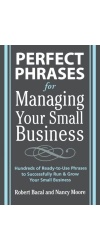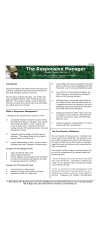Business owners set the tone when it comes to how customers are treated in a small business.
When you see these words: Customer Service, what comes to mind? Speedy service? Low prices? A ‘no-questions-asked’ return policy? Okay, these attributes certainly define some of the aspects of customer service, but speak more to the overall company policies and guidelines that have been crafted, not specifically to the individual providing the service.
It’s all very well for a small business to advertise its customer service policies by publishing such statements as: ‘We guarantee your order will be delivered to you within 24 hours of placement’ or how about the ubiquitous ‘We are so confident you’ll love our product, we offer a “no-hassle” return policy should you be dissatisfied.‘ These are fine customer service practices, but may be rendered useless if the employee who interacts with your customers has an attitude that totally negates your company’s customer services practice with regard to friendly service.
Consider this scenario between a customer and company sales representative. A customer is attempting to take advantage of a time-limited instant rebate that expired two minutes ago:
- customer: I would have been here earlier in the day, but my baby-sitter was late, then my car wouldn’t start so I had to wait for the tow-truck for over an hour, then …………………!
- sales rep: The ad clearly states that the rebate is effective only from 9:00 a.m. ’til 11:00 a.m. You are late.
- customer: I realize that I’m late by a few minutes………..
- sales rep: Rules are rules, and you weren’t here between 9 and 11. I cannot give you a rebate.
- customer: I was hoping you could make an exception for me. I’m a regular customer in good standing and ……
- sales rep: I will not make an exception. I will not give you the rebate.
Does this sound like an employee concerned about delivering customer service? The employee sounds more concerned about following the company policy to the letter and less concerned about manners. So anxious was he (let’s hope) about following the rules, he constantly interrupted the customer, and he showed no empathy for the customer’s situation. So how could the sales rep have better handled the exchange? He could have demonstrated empathy for the customer’s unfortunately hectic morning. And also, he could have offered to speak with his supervisor about making an exception for ‘a valuable customer’.
So we can see that the sales rep really knows the store rule with regards to this particular offer, but very little else about good customer service. Bad for business, and bad for your company’s reputation.
Ensure that potential employees know how much you value (and reward!) civililty, empathy, and the ability to know when to bend the rules occasionally.
This business brief is based on, or excerpted from Perfect Phrases for Managing Your Small Business, published by McGraw-Hill. It’s an outstanding book for all small business owners and covers everything from starting up, determining whether small business ownership is for you, customer service issues and much more. Best of all it’s under $10.00.




